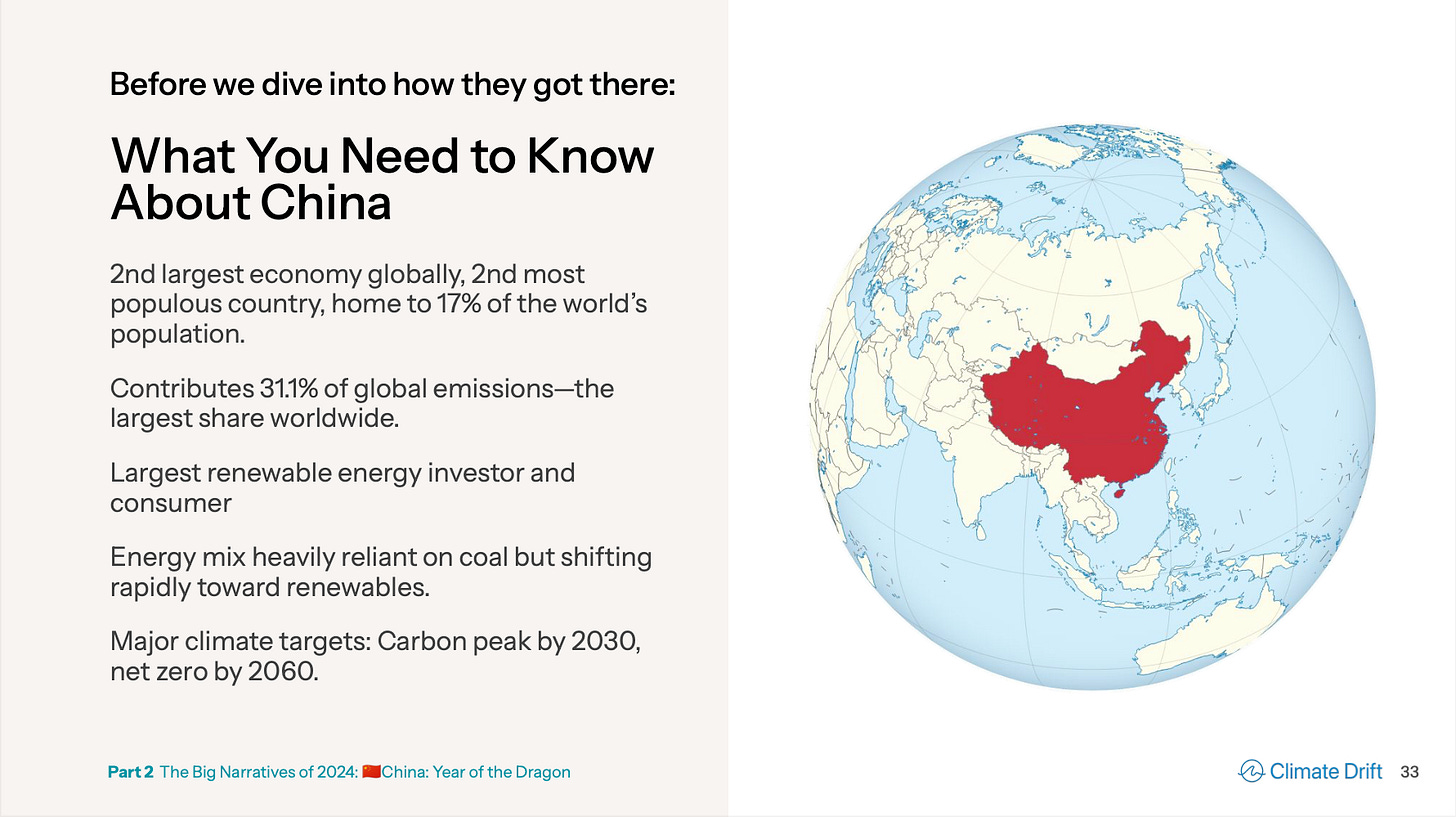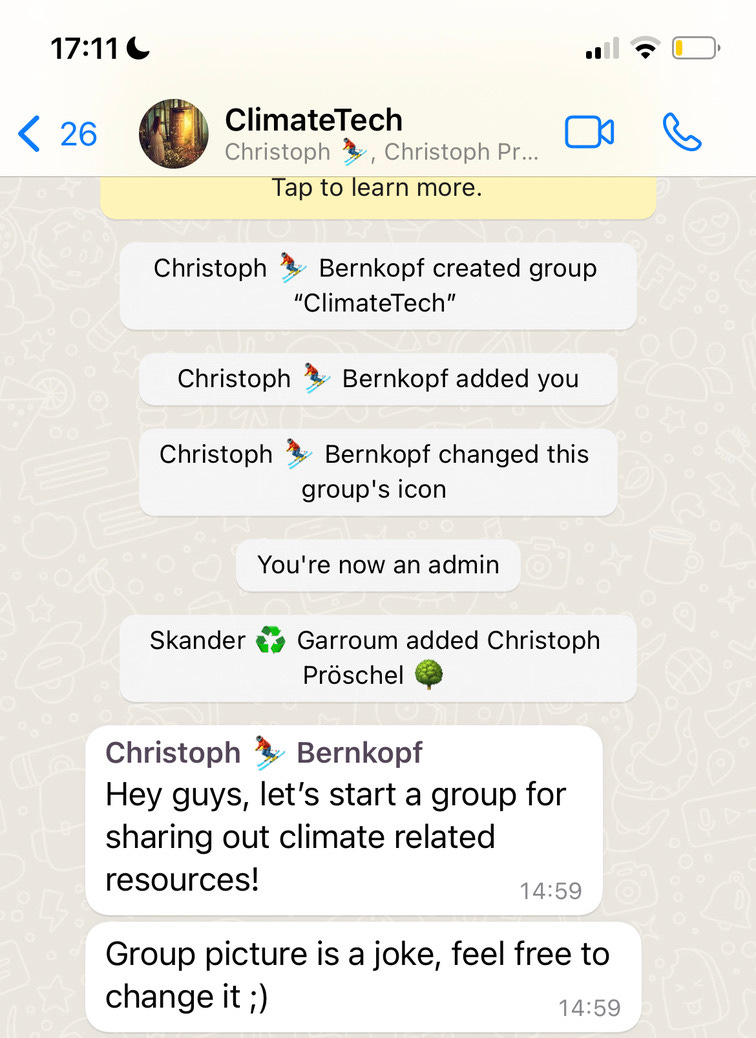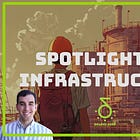Accelerating Climate Careers
A chat with Skander Garroum about entrepreneurship, career transitions, and climate trends.
👋 Hello to 2,958 climate buddies 🌳
Climate is not a technology problem but a story problem.
Delphi Zero is a consultancy and newsletter about the narrative potential of climate.
📧 If you are opening this essay in your email inbox, I recommend clicking on the title of this piece to enjoy the full-length version in the browser.
Happy 2025, everyone. Hope you are healthy and motivated to rock this year of the snake 🐍
Today’s interview is with my buddy Skander Garroum - we go way back to our early entrepreneurial days in San Francisco. In 2022, we reconnected as both of us wanted to break into the climate space (a bit more background here) and we started a private whatsapp group to accelerate our progress via collective learning, accountability, and motivation.
Fast forward, Skander co-founded of Climate Drift - a climate career accelerator - and has helped hundreds of people transition into climate.
Today, we’ll discuss:
His journey of building a business in climate 🎢
Learnings from coaching hundreds of senior-level professionals apply their skills to climate 🌳
Current trends in climate 💡
Enjoy ✌️
Accelerating Climate Careers
By Art Lapinsch
Please tell us a bit about your own journey into climate. What triggered the interest and how did you land where you are today?
I have been a founder my whole life.
I founded my first startup with 16 in China, and since then, I’ve been obsessed with understanding how to build companies. I studied economics, with my thesis focused on network theory, and became a founding team member at Startup Genome at Stanford. We spun out a data benchmarking company, and sold it after a few years, and continued building more data and AI companies.
Over time, I became deeply worried about climate change. The pressing question for me was: Do we have real solutions, or are they, like many startups, just hot air?
In most sectors, a failed startup is unfortunate but acceptable; for climate solutions, failure isn’t an option.
Walk us through the different stages of Climate Drift (your own essays; first cohort; community; etc.). What is it and where do you see it in the future?
Phase 1: Like many serial founders, I started exploring climate solutions and offering advice by learning from the people who are in the space: founders and investors. Quickly I realized that many of the learnings we made scaling startups didn’t make it into climate yet and I wanted to fix this.

Phase 2: Quickly I found a co-founder with a similar background - Marco Morawec He cofounded and exited several education companies and helped 1,000s of people transition careers. You should follow him on Linkedin btw, he drops great climate career advice daily.
I began sharing what I was learning, writing 52 essays in a year and it resonated. Some pieces went viral.
Phase 3: We found the problem we wanted to tackle: Helping people with transferable skills transition into climate.
It started with hundreds of one-on-one calls.
Phase 4: That turned into small structured cohorts - a more scalable way to help.
Phase 5: Now, it’s about sharing what we’ve learned widely to get more people involved.
Today, we find the most experienced and talented people and help them tackle the single most important challenge for humanity: Solving Climate Change.
Looking ahead I want the companies who are working on the most impactful climate solutions to be wildly successful. And I know that hiring the right leadership talent is very difficult and also a make-or-break situation for many of those companies.
I’m passionate about making knowledge freely accessible and easy to find and understand. That’s why we recently launched a free course providing an overview of different climate solution areas. In the future we’re open-sourcing more and more of our insights to ensure this knowledge reaches as many people as possible.
If I can help them find the right talent at the right time then I could look the future generation in the eye and say: this was my contribution. Those companies over there, I helped them build their team so they could scale and do this crazy thing that saved us from the worst.
You are working with a lot of people who want to transition into climate. What are some surprising insights about your audience? Why is it surprising?
The people I work with are incredibly talented and could easily land top roles in tech or other industries. But even with their experience, they struggle to break into climate.
They lack the network and don’t fully understand the solutions landscape. It’s surprising how much even the most capable people need help navigating this space.

What's the main roadblock that prevents people from moving into a climate career? Why is it there and how can it be fixed?
The biggest roadblock is the lack of clarity around the landscape—many people don’t know where their skills can make an impact or how to navigate this complex space. Alone and without clear guidance, the process feels overwhelming and discouraging.
So, what helps?
Education: Provide resources and frameworks to help people understand the climate sector and identify where they can contribute.
Fireside Conversations: Discussions with industry insiders to demystify challenges and provide inspiration.
Accountability: Offer structured frameworks and support to keep individuals focused and on track during their transition.
Pitching Support: Equip people with the tools and strategies to confidently articulate their value and position themselves effectively in the climate space.
These solutions together can break down barriers, create clarity, and enable a smoother transition into meaningful climate careers.
From “Transitioning into Climate: Big Company or Startup?” by Allan Smith (via Climate Drift):
One of the coolest parts of my past year has been colleagues from all previous walks of life - NASA, Tech, Hollywood - reaching out and wanting to learn about my exploration into Climate. From hundreds of conversations this year, I’m motivated by the wide-scale understanding and imperative across a large talent pool. Everyone I talk with seems to get the opportunity and immediacy of solving these Climate challenges. All of them come back to a similar question: How do I start?
Here are the behaviors that work for me as I’ve navigated the past year of career transition into tech.
Show up. Much of my luck and opportunity comes through availability. My friend encouraged me to join the My Climate Journey Collective, I noticed climate meet-ups happening in the city; I do a decent job staying in touch with friends from past lives. Every one of these opportunities faces a decision point - do I pay the $99 to join a Slack community? Do I really feel like fighting traffic to go to a networking event? I’m an extreme activator - I’d always rather be taking a step than waiting and analyzing, so I tend to jump at these opportunities. I can 100% point to the ‘luck’ I create by simply showing up to these opportunities.
Work with intention. This requires first doing the work to understand what I’m working towards. As my friend Jeff MacGregor tells me, it’s time to get really honest with myself about what I’m solving for. If it's a financial opportunity, I work to understand that and fit it into my moral framework. This allows me to pursue it relentlessly. If it’s to save the planet, I still do the same self-work: is this about feeling good about myself or making up for something? When I discovered my intention lies in the world I’m creating for my kids to inherit, I tapped into a clear motivation to keep me going through inevitable disappointments, dead ends, and obstacles.
Remember: I can always learn. If you’re mapping out a career change to Climate, you’ll have the opportunity to make money, meet amazing people, and work on something inspiring and daunting. At some point, some of the smaller details like what type of org to join, where to apply your talent are just iterations and opportunities to learn. You can’t fail if you keep improving with each decision.
What's the most useful skill you have taught your students?
Knowing where, how and in what order to apply their skills and experiences to help a climate company scale.
This is why we have challenges: helping Drifties find challenges in the climate world where their skills and experiences apply and helping them package them.
What's something you have started to see in a different light now that you started teaching people about climate?
I’ve realized how tough this journey is - breaking into climate, staying updated on such a fast-evolving topic, and keeping motivation high.
What’s been inspiring, though, is seeing the power of community. The way our high-powered Drifties support each other is incredible.
What's your take on the current climate career market? How is it evolving? What's something to look out for?
The climate tech sector is maturing, and the career market is catching up. There are more roles opening up across various areas.
But with the current funding slowdown, companies are hiring strategically, focusing on senior positions. It’s creating a competitive landscape where hundreds of applicants are going for a handful of high-impact roles.
You have published your Climate Recap 2024 - a trend report slide deck. What was most surprising to the audience? What is something unintuitive that few people understand? Why is that? What was most surprising to you?
Most surprising to the audience: China’s dominance in climate tech. They control 80% of solar cell production, 50% of lithium-ion batteries, and 60% of EV manufacturing. They’re also gearing up to lead in hydrogen and other solutions.

Decades of subsidies, industrial clusters, and supply chain control made this possible. There is a lot to learn from this… and many ways to collaborate.
Something unintuitive: Climate is fundamentally an infrastructure game. Even with all the progress and exponential milestones, we’re still in the early stages. Every solution, even renewables, is in its infancy. That means anyone who dives in now can become an expert and have an impact quickly.
Most surprising to me: Despite all the 2024 hype around data centers and AI, these areas are underfunded and under tested.

There are so many potentially impactful solutions that just aren’t being explored. I hope 2025 changes that.
Can you share a specific story of someone from your cohorts who made a successful transition/transformation into climate? What were the steps? What can others learn from that?
Jonathan, a partnerships lead at the Gates Foundation, wanted to break into Sustainable Aviation Fuels (SAF).
The challenge? Explaining the value of partnerships in a technical space.
He delivered value upfront: diving deep into the SAF landscape and writing a 25-page deep dive on stakeholders and relationships. It showed he understood the space inside out.
Now, he’s the Director of Renewable Fuels at Earth Finance, developing an SAF accelerator and helping kickstart the sector and airlines decarbonize.
Climate Drift has a big content catalogue - especially from guest writers. How has the process evolved over time? What have you learned about writing throughout this process?
Writing is about delivering value.
The form matters less than the substance: understanding your audience’s problems (the ones they know and the ones they don’t) and addressing them in a way only you can.
The hard part is extracting and amplifying that value in both writing and editing.
My go-to question is: Who is this helping, and how?
What is something that you have changed your mind about since entering the climate space? What is something you have doubled down on?
Changed my mind: I used to think the space was full of dreamers and hot air. But there are so many real, scalable solutions ready to go. The time to work in climate is now and everyone who is starting now will still be early.
Doubled down on: Believing in the amazing people working on real solutions—they’re making money and having a real impact. I am also a strong believer that we can create the future we want. This is your opportunity now, to step in and work in climate.
Looking back from a Net Zero future, what do you hope they will say about us?
That we tried hard, succeeded, and made the world a better place for everyone.
Offer from Skander: We want to give a little something for Delphi Zero readers: Mention 'Delphi Zero' in your application to be fast tracked for a 1on1 interview.
🙏 Thanks, Skander for taking time and sharing your perspective.
I’d love to hear from you, please get in touch and tell me whom I should interview next or which topics you’d like to see covered ✌️









